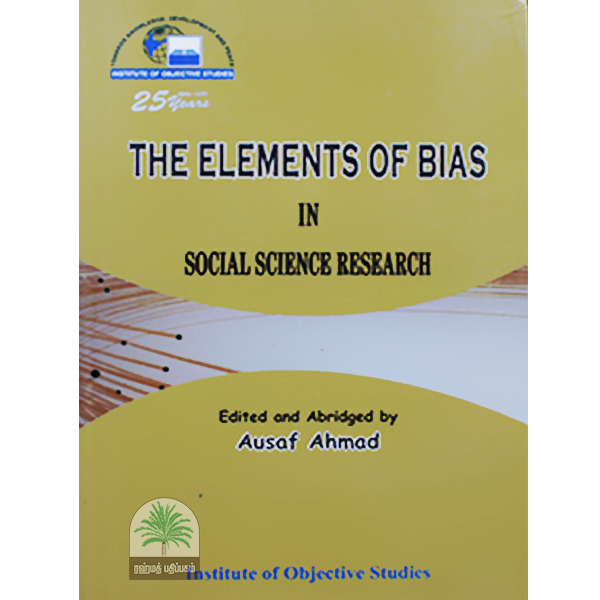THE ELEMENTS OF BIAS IN SOCIAL SCIENCE RESEARCH
₹595.00
11 in stock
Description
Earlier several studies were carried out on Muslim fertility and family planning mainly in relation to other communities such as Hindus. Most of these studies revealed a higher fertility and lower family planning practice among Muslims. However, very few efforts have been made to look into high Muslim fertility taking into account various social, cultural and religious factors exclusive to Muslims. The present study tries to fill up this gap. This study has found that it is not religiosity but the factors such as modernization, status of woman and female education which are important contributory factors that can explain high fertility and low family planning practice among Muslims. Thus the present study dispels the misconception that fertility is high and family planning acceptance is low among Muslims because they are a highly religious community.Again very few studies have tried to study the opinions and attitudes of the Muslim leadership towards various aspects such as status of woman, modernization, religiosity, female education, small family norm, use of contraception etc. The present study has covered this area by trying to get the Muslim leadership views and attitudes regarding above mentioned variables in Muslim community. The findings of the present study are revealing in light of the fact that in the lower socio-economic group of Muslim community leaders wield a lot of influencing power
Additional information
| Weight | 510 g |
|---|---|
| Publisher | Institute of objective studies |
| Author Name | Dr.Malika Babasaheb Mistry |





